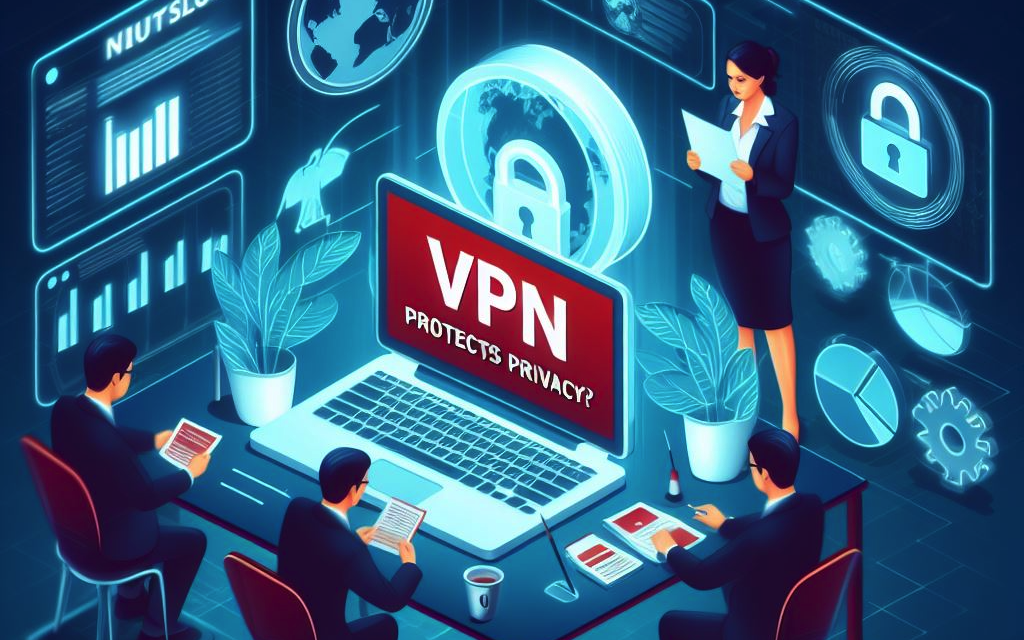Key Takeaways:
- VPNs can significantly enhance personal online privacy and security.
- Understanding how VPNs work is crucial for making informed decisions.
- There are limitations and risks associated with using VPNs.
- Comprehending different VPN features helps you select the exemplary service.
What is a VPN?
A Virtual Private Network (VPN) is a secure tunnel between your device and the internet. By encrypting your data, VPNs ensure that your online activities remain private and secure. This is especially important when using public Wi-Fi networks at places like cafes or airports. Sharing personal information over an unsecured network can pose significant risks, like data interception or theft. When exploring VPN safety, it’s crucial to understand their core function and benefits. They protect against cyber threats and help maintain your anonymity online, giving you peace of mind as you navigate the digital world.
Why Do People Use VPNs?
People use VPNs for various reasons, from enhancing privacy to accessing geo-blocked content. Primarily, it is to improve their privacy and security online. With rising concerns over data breaches and surveillance, VPNs serve as a formidable defense. They help protect personal data from hackers, government surveillance, and even your internet service provider (ISP). VPNs also help circumvent issues like price discrimination, where a product or service’s cost varies based on your location.
Moreover, individuals use VPNs to bypass geographic restrictions and access content unavailable in their country, streaming libraries, social media sites, and news portals. This includes everything from streaming services to websites blocked in certain regions. The ability to do so privately and securely makes VPNs increasingly popular among users worldwide who seek a more accessible, unrestricted internet experience.
How Do VPNs Work?
VPNs operate by rerouting your internet connection through a server located in a different place. This server acts as an intermediary, masking your IP address and encrypting all transmitted data. Your IP address, which identifies your location, is masked, making it difficult for websites and third parties to track your activity. This process ensures that your online identity is hidden, adding a layer of anonymity to your web browsing. The data transmitted between your device and the VPN server is encrypted, providing an extra layer of security.
This encryption is beneficial when accessing sensitive information, such as online banking or personal emails, and helps prevent cybercriminals from intercepting your data. By creating a secure and private connection, VPNs allow you to browse the internet without fear of eavesdropping or tracking, ensuring that your online activities remain confidential and safe from prying eyes.
Limitations and Risks of Using VPNs
While VPNs offer numerous benefits, they have limitations and risks. It’s essential to recognize that VPNs do not provide complete anonymity. Some VPN providers may keep logs of your activities, potentially compromising your privacy. Constantly scrutinize the privacy policies of VPN services to ensure they align with your privacy needs. This practice helps avoid situations where your online behavior could be monitored and recorded.
Additionally, using a VPN slightly reduces your internet speed due to the encryption process. This slowdown happens because your data travels a longer path, first to the VPN server and then to the final destination. Choosing a reputable provider is essential to minimize potential risks and avoid unreliable connections. Users should weigh these factors to make informed decisions about their internet security methods. In certain countries, the use of VPNs might be restricted or monitored, adding another layer of complexity to their use. Considering these aspects, while VPNs are a robust tool for enhancing security, they should only be seen as a one-stop solution for some privacy concerns.
Features to Look for in a VPN Service
Choosing the exemplary VPN service requires carefully considering various features affecting its efficiency and reliability. Here are some key features to look for:
- Strong Encryption: Look for services that use robust encryption standards like AES-256, which is known for its high level of security. This ensures that even if your data is intercepted, it cannot be easily decrypted. Strong encryption is crucial for protecting your data from cyber threats.
- No-Logs Policy: Ensure the provider has a strict no-logs policy to maintain your privacy. This means the VPN service does not store information about your online activities. A no-logs policy ensures that your data remains private and inaccessible to third parties.
- High-Speed Connections: Opt for VPNs that offer minimal impact on your browsing speed. Look for services that have high-speed servers to prevent lag and buffering while streaming or downloading. High-speed connections are essential for an uninterrupted and smooth online experience.
- Multiple Server Locations: A wide range of server locations allows better access to geo-restricted content. More servers in diverse locations mean you can find a fast and stable connection in many regions. The more server locations a VPN offers, the more content you can access from different parts of the world.
- User-Friendly Interface: The VPN app or software should be easy to use. A simple, intuitive interface ensures that even non-tech-savvy users can navigate the service efficiently. A user-friendly interface enhances the overall experience, making accessing the VPN’s features easier.
Conclusion: Are VPNs Worth It?
Whether VPNs are worth it depends on your specific needs and internet use. VPNs can provide significant benefits, including enhanced privacy and security, access to restricted content, and safeguarded communications.
They are handy for individuals who prioritize online privacy, travel frequently, or need to bypass geo-restrictions. However, it’s crucial to remain aware of their limitations and choose a reliable service provider to maximize the advantages of a VPN. Weighing the pros and cons and understanding your privacy requirements will help you make an informed decision.
Regardless of the choice, staying vigilant and updated on internet security measures assures a safer online experience. As cyber threats continue to evolve, the role of VPNs in enhancing online privacy and security becomes increasingly relevant, making them a valuable tool in the arsenal of any internet user.
For more great updates keep visiting yellowsstone.




